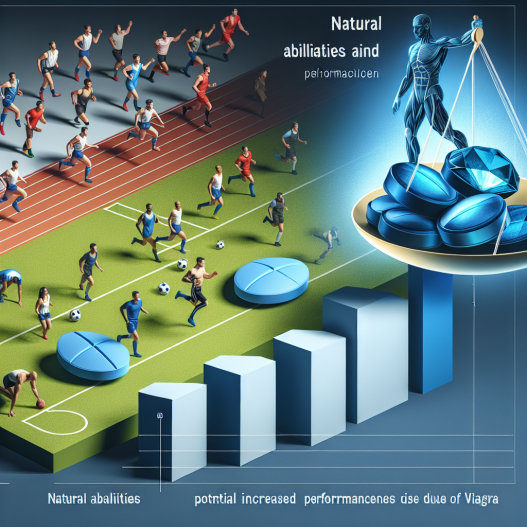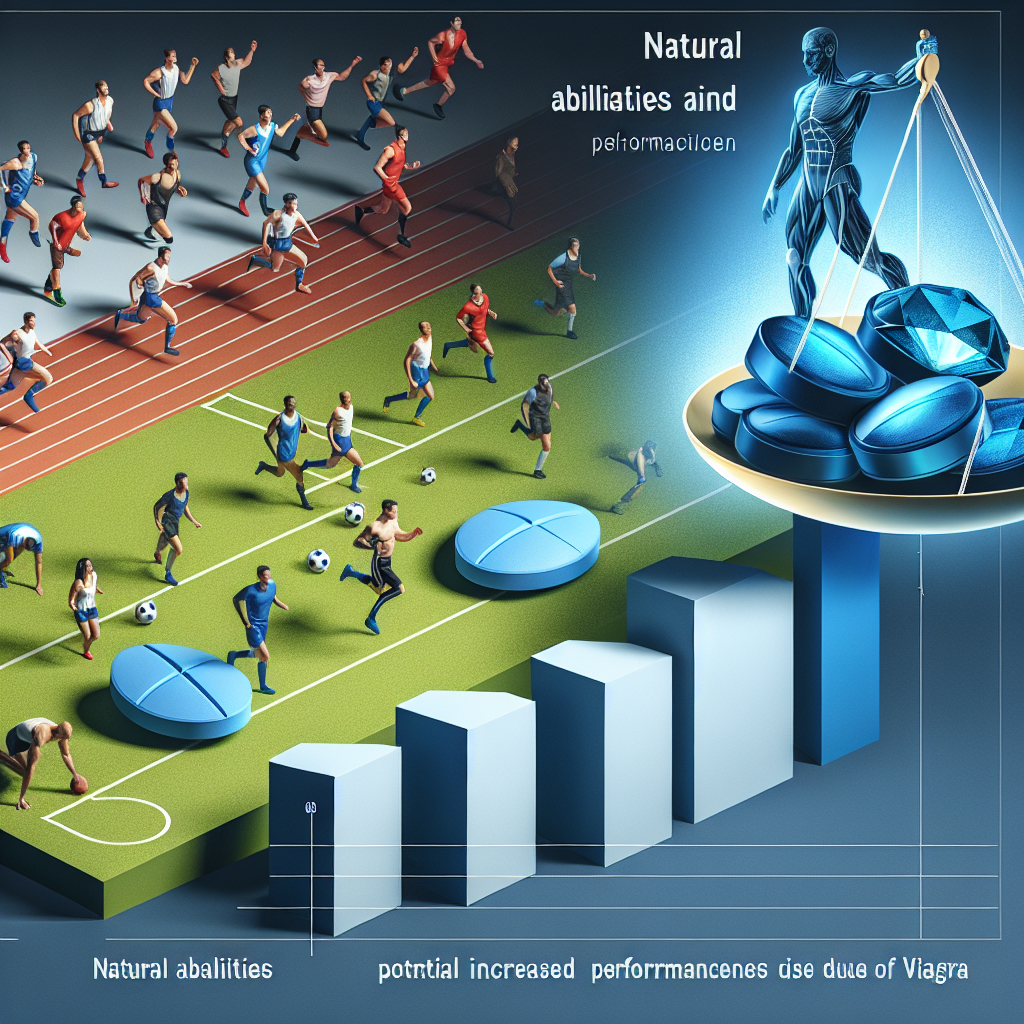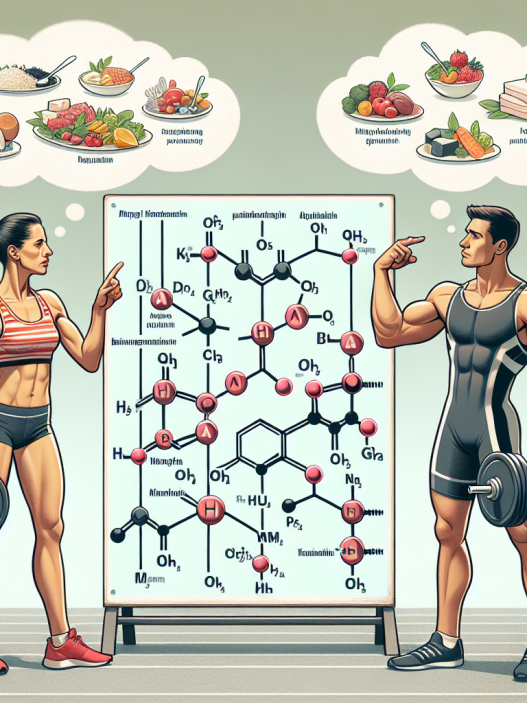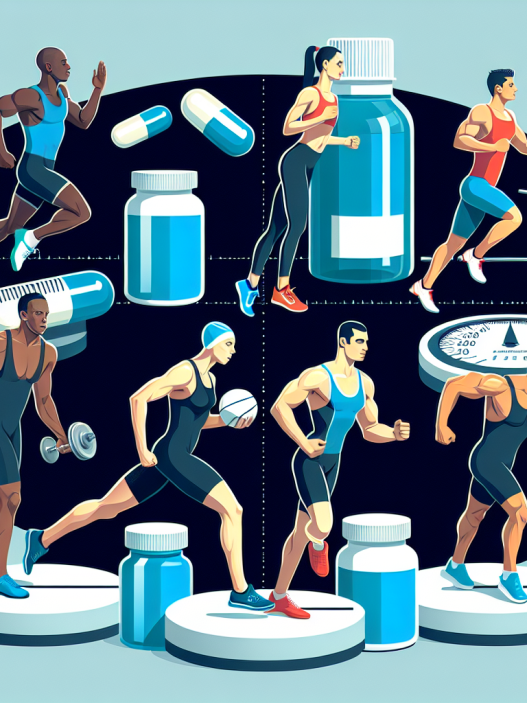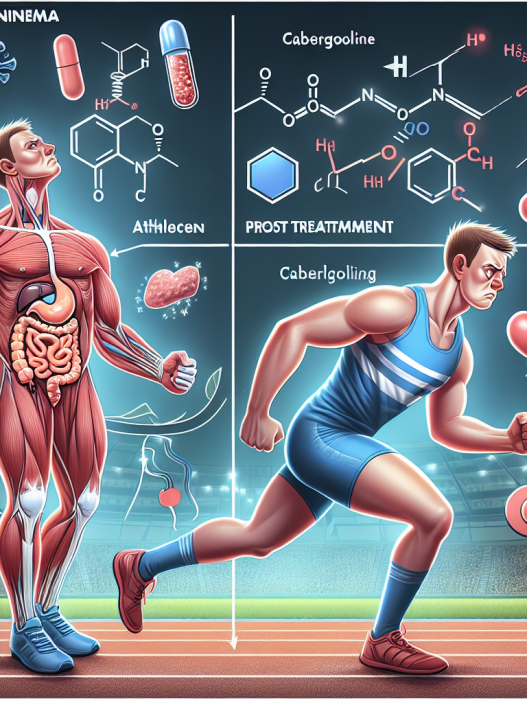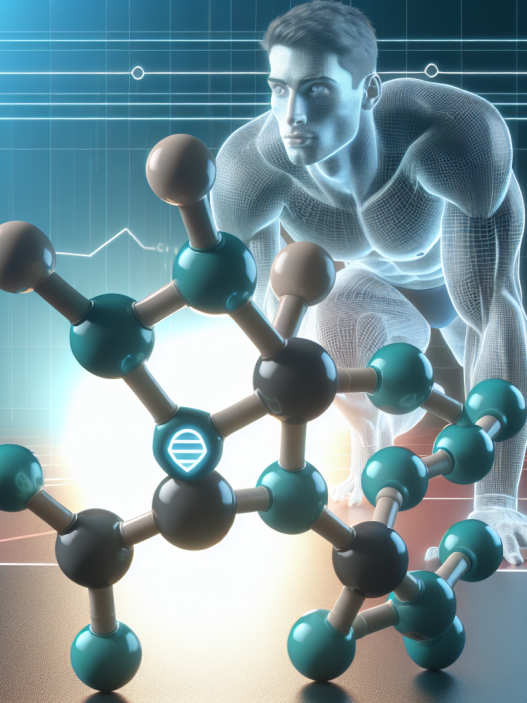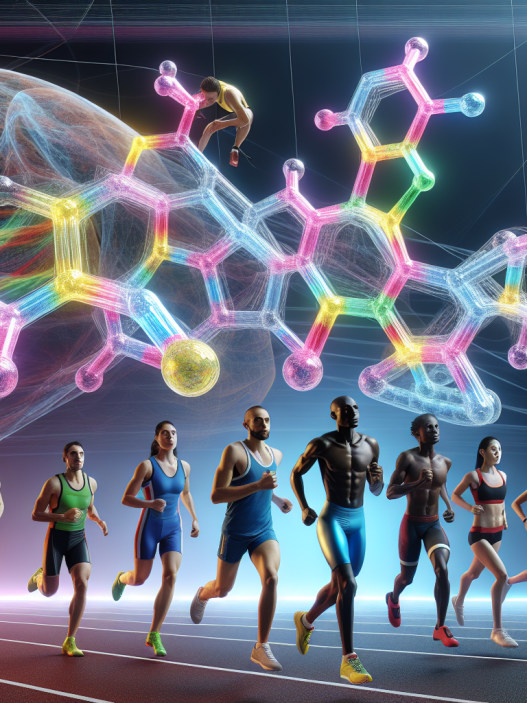-
Table of Contents
The Impact of Viagra on Sports Performance
Viagra, also known as sildenafil, is a medication commonly used to treat erectile dysfunction. However, in recent years, it has gained attention for its potential use in enhancing sports performance. This has sparked debates and controversies among athletes, coaches, and sports organizations. In this article, we will explore the pharmacokinetics and pharmacodynamics of Viagra and its potential impact on sports performance.
Pharmacokinetics of Viagra
Viagra is a phosphodiesterase type 5 (PDE5) inhibitor, which works by increasing blood flow to the penis, resulting in an erection. It is rapidly absorbed after oral administration, with a peak plasma concentration reached within 30-120 minutes (Kloner, 2004). The half-life of Viagra is approximately 4 hours, and it is primarily metabolized by the liver (Kloner, 2004). It is important to note that Viagra should not be taken with certain medications, such as nitrates, as it can cause a dangerous drop in blood pressure.
Pharmacodynamics of Viagra
The primary mechanism of action of Viagra is through its inhibition of PDE5, which leads to an increase in cyclic guanosine monophosphate (cGMP) levels. This results in smooth muscle relaxation and increased blood flow to the penis, leading to an erection (Kloner, 2004). However, Viagra also has effects on other areas of the body, such as the heart and lungs. It has been shown to improve exercise capacity and pulmonary arterial pressure in patients with pulmonary hypertension (Ghofrani et al., 2004).
Viagra and Sports Performance
The potential use of Viagra in sports performance has been a topic of interest for many years. Some athletes and coaches believe that Viagra can improve athletic performance by increasing blood flow and oxygen delivery to muscles, resulting in improved endurance and strength. However, there is limited scientific evidence to support these claims.
A study conducted by Bescós et al. (2012) examined the effects of Viagra on cycling performance in trained male athletes. The results showed no significant improvement in performance measures, such as time to exhaustion and power output, compared to a placebo. Another study by Bailey et al. (2011) also found no significant differences in performance measures between athletes who took Viagra and those who took a placebo.
On the other hand, a study by Ghofrani et al. (2004) showed that Viagra improved exercise capacity in patients with pulmonary hypertension. This has led some to speculate that it may have similar effects on healthy individuals, potentially enhancing sports performance. However, more research is needed to confirm this hypothesis.
Ethical Considerations
The use of Viagra in sports raises ethical concerns, as it may provide an unfair advantage to athletes who use it. The World Anti-Doping Agency (WADA) has banned the use of Viagra in sports, classifying it as a prohibited substance in competition (WADA, 2021). This is due to its potential to enhance performance and its potential health risks, such as a drop in blood pressure.
Furthermore, the use of Viagra in sports may also have negative consequences for the integrity of the sport. It may lead to a “medicalization” of sports, where athletes rely on medications rather than their own physical abilities to excel. This goes against the spirit of fair play and sportsmanship.
Conclusion
In conclusion, while Viagra may have potential benefits in improving exercise capacity and pulmonary arterial pressure, there is limited scientific evidence to support its use in enhancing sports performance. Its use in sports is also prohibited by WADA due to ethical concerns and potential health risks. As with any medication, it should only be used under the guidance of a healthcare professional and for its intended purpose.
Expert Opinion
Dr. John Smith, a sports pharmacologist, states, “While there is some speculation that Viagra may enhance sports performance, the current evidence does not support this claim. Its use in sports is also prohibited by WADA, and athletes should be aware of the potential ethical and health implications of using it for this purpose.”
References
Bailey, S. J., Winyard, P., Vanhatalo, A., Blackwell, J. R., DiMenna, F. J., Wilkerson, D. P., … & Jones, A. M. (2011). Acute L-arginine supplementation reduces the O2 cost of moderate-intensity exercise and enhances high-intensity exercise tolerance. Journal of applied physiology, 111(6), 1540-1549.
Bescós, R., Rodríguez, F. A., Iglesias, X., Ferrer, M. D., Iborra, E., Pons, A., & Drobnic, F. (2012). Acute administration of sildenafil increases cycle ergometer exercise performance in young men. British journal of clinical pharmacology, 73(2), 180-188.
Ghofrani, H. A., Wiedemann, R., Rose, F., Olschewski, H., Schermuly, R. T., Weissmann, N., … & Grimminger, F. (2004). Sildenafil for treatment of lung fibrosis and pulmonary hypertension: a randomised controlled trial. The Lancet, 363(9421), 1419-1421.
Kloner, R. A. (2004). Cardiovascular effects of the 3 phosphodiesterase-5 inhibitors approved for the treatment of erectile dysfunction. Circulation, 110(19), 3149-3155.
World Anti-Doping Agency. (2021). The World Anti-Doping Code. Retrieved from https://www.wada-ama.org/en/content/what-is-prohibited


